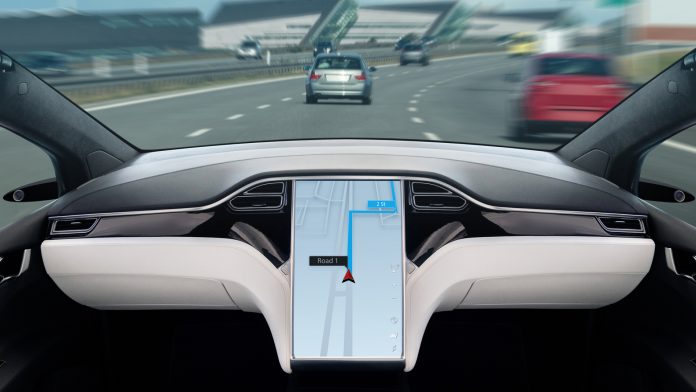Automated Lane Keeping System technology outcome means the UK could see self-driving vehicles on the roads by the end of the year.
The Department for Transport has announced that motorists could see self-driving vehicles on UK roads for the first time by the end of the year.
After calling for evidence on the safe use of Automated Lane Keeping System (ALKS), the government has set out how vehicles fitted with ALKS could be categorised as self-driving, providing they receive GB type approval and that no evidence questions the vehicle’s ability to self-drive.
ALKS has been optimised for motorway use in slow traffic, and facilitates the vehicle being able to drive in a single lane, whilst retaining the ability to return control safely and effortlessly to the driver when needed.
The technology has the potential to enhance road safety by reducing human error, which plays a role in over 85% of road accidents. With this technology, the driver is able to hand control over to the vehicle, which will continually monitor speed and keep a safe distance from other cars.
Transport Minister Rachel Maclean said: “This is a major step for the safe use of self-driving vehicles in the UK, making future journeys greener, easier, and more reliable while also helping the nation to build back better.
“But we must ensure that this exciting new tech is deployed safely, which is why we are consulting on what the rules to enable this should look like. In doing so, we can improve transport for all, securing the UK’s place as a global science superpower.”
Utilising self-driving vehicle technology could result in reducing urban congestion, with traffic lights and vehicles able to communicate to keep traffic flowing and minimising emissions.
As well as the promise of improving road safety, self-driving technology could potentially improve access to transport for those with mobility issues, resulting in more reliable public transport and helping to increase access to transportation in traditionally disconnected or rural areas.
Self-driving vehicle technology also comes with the possibility of creating up to 38,000 new jobs in a UK industry that could be worth around £42bn by 2035.
SMMT Chief Executive, Mike Hawes, commented: “The automotive industry welcomes this vital step to permit the use of automated vehicles on UK roads, which will put Britain in the vanguard of road safety and automotive technology. Automated driving systems could prevent 47,000 serious accidents and save 3,900 lives over the next decade through their ability to reduce the single largest cause of road accidents – human error.
“Technologies such as Automated Lane Keeping Systems will pave the way for higher levels of automation in future – and these advances will unleash Britain’s potential to be a world leader in the development and use of these technologies, creating essential jobs while ensuring our roads remain among the safest on the planet.”








